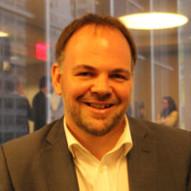Women and peacemaking in Burundi: another Mandela legacy – By Georgina Holmes

 Nelson Mandela’s philosophy towards conflict resolution has had a profound impact on international peacemaking processes, but it was his policy of inclusion that opened doors for women.
Nelson Mandela’s philosophy towards conflict resolution has had a profound impact on international peacemaking processes, but it was his policy of inclusion that opened doors for women.
Six months after the end of his presidential term in December 1999, Mandela was appointed as the new mediator in Burundi’s faltering peace process. Mandela’s predecessor, Julius Nyerere, had succeeded in extending the Arusha Talks to all recognised political parties that had participated in the 1993 elections, but the approach he adopted followed the standard strategy used by the UN, which saw other elements of Burundian society excluded. Within a week of his appointment, Mandela cautioned that the exclusion of any groups with the potential to create instability in Burundi would be detrimental to achieving long-term peace. His team brought together 19 separate Burundian organisations, although some armed rebel factions still refused to participate.
Later, Mandela expressed frustration at the lack of flexible leadership among the negotiating parties, counseling that “˜there are good men and women in all communities’ and that the “˜art of leadership is to compromise with your adversary not your friends’. Building trust, understanding each other’s cultures and breaking down dehumanising stereotypes were prerequisites to uniting leaders and their peoples. Finding a shared understanding was to be the focus for Burundian negotiators, and Mandela was critical of their “˜manoeuvring to discredit or weaken’ rivals. Mandela’s attitudes towards resolving conflict through peaceful means drew on his experiences of negotiating with his oppressors in apartheid South Africa and then, as President, successfully transitioning a volatile country into a peaceful democracy. In Burundi, he proved to be a deft mediator, using discipline and encouragement to bring Burundians closer to reaching consensus and rejecting his predecessor’s use of threats and intimidation. He was able to turn to his advantage the acclaim he received as a great statesman, raising international awareness of the Burundian crisis, while commanding respect from Burundians as a freedom fighter against apartheid rule.
As a mediator, Mandela saw the importance of the many political processes under way in Burundi and speculated that “˜if harnessed and directed at constructive routes’, these processes “˜could form the basis for lasting political settlement’. Building on these dynamics was deemed particularly vital if peace was to be sustained in states where conflicts were primarily based on identity politics, or the politics of inclusion and exclusion, and where civilians bore the brunt of suffering. It is here that women gained their entry point into the peacemaking process. Burundian women had worked for many years implementing local peace initiatives but had consistently been excluded from the formal peace process at the national level. By making the peace negotiations a more public affair, Mandela called on civil society groups and women’s groups to input into the design of the Arusha Peace and Reconciliation Agreement, which was eventually signed on 28 August 2000.
Working with the United Nations Development Fund for Women (UNIFEM) and the Mwalimu Nyerere Foundation, Mandela supported an All-Party Burundi women’s peace conference on 17-20 July 2000 in Arusha, Tanzania. Over 50 Burundian women representatives from the 19 Burundian organisations involved in the peace negotiations attended and together put forward several gender specific demands. Among these were the inclusion of a women’s charter in the constitution, measures to ensure women’s security, women’s rights to land, inheritance and education, and an end to impunity for both gender based war crimes and domestic violence. These recommendations were presented by Mandela to the 19 organisations, who accepted all of the women’s recommendations – although their request to have a 30 per cent quota for women at all political decision making levels did not feature in the final peace agreement, and only later would women achieve a stronger political voice in Burundi.
Leading by example
Mandela’s efforts to engage Burundian women could not have been better timed. Women’s transnational mobilisation to reform international law and institutions had led to the ratification of the landmark UN Security Council Resolution 1325 – on Women, Peace and Security in 31 October 2000. The work of Mandela and his partners provided a practical example of how women could be brought into peacemaking processes at all levels, and as a result Resolution 1325 acquired greater legitimacy internationally. As former Executive Director of the United Nations Development Fund for Women (UNIFEM), now UN Executive Secretary for the UN Economic and Social Commission for Asia and the Pacific, Dr. Noeleen Heyzer observed in July 2013, Mandela “˜was one of the first world leaders to truly grasp the importance of the adoption of Resolution 1325…it was he who helped us breathe life into its implementation’.
More than a decade on from the Burundian crisis, actual numbers of women in formal peace negotiations around the world are still pitifully low. Women constitute around two per cent of negotiating teams, although informal “˜Track II’ conflict resolution mechanisms allow women to push for peace accords that address gender-specific priority issues such as physical security and human rights. There is concern that Resolution 1325 and its associated resolutions are not being implemented effectively. The unanimous adoption by UNSC of Resolution 2122 on Friday 18 October 2013, which calls for a more systematic approach to the implementation of commitments on women, peace and security is another welcomed step towards establishing a framework that supports gender parity. Yet, in reviewing Mandela’s legacy, it seems that women’s genuine integration into peace processes can only be achieved through incisive and visionary leadership and a sustained commitment to long-term social transformation.
Dr Georgina Holmes is a Lecturer – International Relations at the University of Portsmouth and the author of Women and War in Rwanda (2013), published by I.B Tauris.
This article was previousoy published on the Strife blog.






